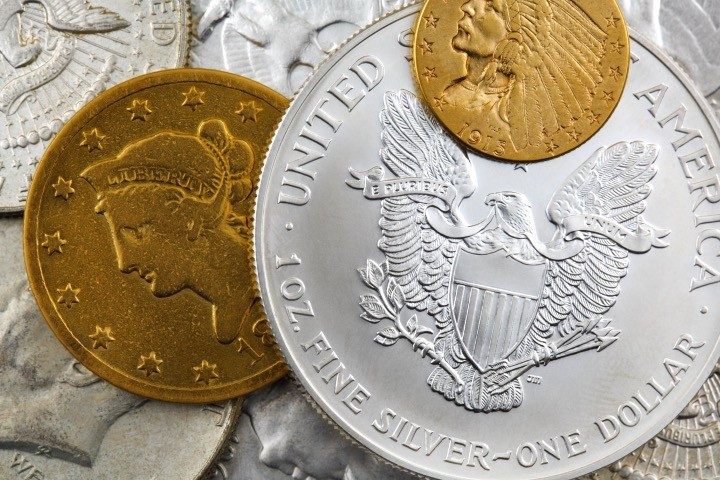
Several states are considering bills that would make gold and silver legal tender.
That shouldn’t be news, because the U.S. Constitution requires that states joining the union commit to that very principle. Article I, Section 10 reads in relevant part:
No State shall … make any Thing but gold and silver Coin a Tender in Payment of Debts
This was a requirement for ratifying the Constitution. Any state seeking to adopt the new Constitution and join in a union with the other states who would ratify it would have to agree beforehand to only endow gold and silver with the status of legal tender.
This clause of the Constitution has never been amended, so it’s still in effect, although you’d be forgiven for not knowing that based on the behavior of the federal government for over 100 years.
Distinct from many other unconstitutional programs and policies forced upon the people of the United States by judges, lawmakers, and presidents, the compulsory use of Federal Reserve notes as legal tender “for all debts, public and private” is an open and hostile affront to the blackletter of the Constitution.
One could make a bit more of a connection between the violation of Article I, Section 10 and Article IV, Section 4, the latter being the section of the Constitution that guarantees “to every state in this union a republican form of government.”
In other words, by making mandatory the acceptance of paper money (Federal Reserve notes), Congress is denying to the states a republican form of government, as it is prohibiting the representatives of the people from making laws that conform with the Constitution.
Beyond that, the forced acceptance of fiat currency issued by the Federal Reserve has laid an enormous and generational burden on the backs of Americans.
Thomas Jefferson foresaw this, and warned:
I am not among those who fear the people. They, and not the rich, are our dependence for continued freedom. And, to preserve their independence, we must not let our rulers load us with perpetual debt.
His best friend, James Madison, echoed Jefferson’s description of debt:
Public Debt is a Public curse and in a representative government a greater than in any other.
Nothing has done more to exacerbate that curse than the Federal Reserve exercising absolute power over the monetary policy of the United States.
The Federal Reserve — ostensibly a nonprofit organization — owns the mint and the money, and sets the terms of the loans it makes to the federal Treasury. What’s more, there is no product; there is nothing being loaned other than worthless paper that can never be traded in for anything of value because all that is used to secure the worth of the currency is now owned by the very bankers who control the Federal Reserve.
The fact is that since that day in 1913 when the Fed was created, the dollar has lost over 95 percent of its purchasing power. Most, if not all, of this precipitous decline was caused by the monetary policy of the Federal Reserve.
And the Fed will continue to accumulate power. There is no limit to the lengths global bankers will go to in order to control the economic policies that affect the entire population of the world. There is no hope of regulating restraint. Power of this magnitude operates beyond the reach of regulations.
The key to restoring sound money in the manner prescribed by the Constitution is for the people to call on Congress to abolish the Federal Reserve and to elect state legislators (all of whom took an oath to “support the Constitution”) committed to busting up the Fed’s fiat money monopoly by enacting gold and silver currency bills such as those being considered in Arkansas, Tennessee, Kansas, Texas, New Jersey, and Maine.
If any state authorizes gold and silver as an alternative to Federal Reserve notes, economists say, the economy of such a state would stabilize and increase. A happy side effect of such a system would be the weakening of the Federal Reserve notes and a strengthening of the appeal of gold and silver.
This genuine recovery (as opposed to the “boom and bust” pseudo-recovery espoused by former Federal Reserve chief Ben Bernanke) would obliterate the fiat money monopoly exercised by the Federal Reserve. The history of that monstrosity was described most ably in G. Edward Griffin’s The Creature from Jekyll Island. Griffin writes:
The American Heritage Dictionary defines fiat money as “paper money decreed legal tender, not backed by gold or silver.” The two characteristics of fiat money, therefore, are (1) it does not represent anything of intrinsic value and (2) it is decreed legal tender. Legal tender simply means that there is a law requiring everyone to accept the currency in commerce. The two always go together because, since the money really is worthless, it soon would be rejected by the public in favor of a more reliable medium of exchange, such as gold or silver coin.
If lawmakers and governors in the several states live up to their Article VI oath to support the U.S. Constitution, they will join their colleagues in sponsoring these sound-money bills and legislatively placing the rights of residents of their state beyond the tyrannical overreach of the federal government and the Federal Reserve, as pertaining to money, particularly specie.
Americans interested in prosperity, limited government, and the restoration of the Constitution as the law of the land must demand that their legislators prove their fidelity to their Article VI oath; that federalism be re-enshrined as a cornerstone of American liberty; and that Article I, Section 10 be followed.


